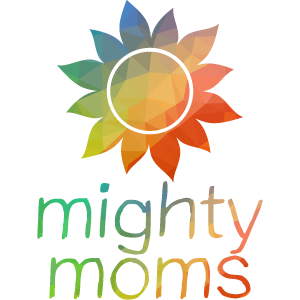Guest Post: Strategies for Helping Your Child’s Language Skills

I am my child’s most important teacher in life. As a reading specialist, I know how crucial early language and literacy skills are for young children. It sets the tone for the rest of their lives. As my children grow up, they still remember the books we read and the songs and games we sing and play together. In today’s post, I am going to give you some valuable advice on ways to help your child’s language skills.
Read together daily
Often parents stop reading to their children once they learn to read on their own. This is a huge mistake. My reading skills are much more advanced than those of my children. By reading more advanced books to them, I am exposing my children to higher grammar, vocabulary, images, and ideas in speech. Be aware when reading to your child that they often may not ask what an unfamiliar word means. When coming across an unfamiliar word you can ask your child to define it and if necessary provide them with the definition, synonym, antonym or physical enactment of the meaning. You can make it fun by having them write the word on an index card and taping it on the front door. When the child walks in and out of the door they have to give you a sentence with that word in it. Fun!
Don’t interrupt or fill in the blanks
Patience is really important for helping your child’s language skills. Give your child time to put their thoughts into words and opportunities to practice. If simply waiting doesn’t do the trick for a child with word retrieval problems, then prompt them with a ridiculous alternative. For example, if your child says, “I’m looking for the, uh… um…er…,” you can ask “rhinoceros… leprechaun?” Usually after a few giggles your child should be relaxed enough to find the right word.
Spend time each day having your child describe the details of their day or particular topics of interest or ideas. The dinner table tends to be a natural conversation place for families to talk and catch up on daily events. Also, before turning out the lights in bed is another great time to let your child fill you in on the day’s events as well as create conversation and bonding time in a relaxed environment. If your child speaks very little or has nothing to say, you can provoke them by taking a stance with which you know they’ll disagree. For instance, if your child loves video games, say, “some people think playing video games with children is a bad idea, because this might not encourage creativity. What do you say?”
Make sure your child’s skills are constantly challenged and force to grow
Home is a place where children feel free to express themselves without judgement. They feel that they can make mistakes, ask questions and discuss difficult topics with their family members that they would otherwise be afraid to explore. So here is where you can really build and challenge your child’s vocabulary and language skills. Introduce new words and offer its definition or use it in context that is easily defined. For example, “I think I will drive you in the vehicle this morning instead of making you walk to school.”
Avoid electronic devices, television, etc. whenever possible to encourage language skills
Electronics do not interact with or respond to your child the way you will. Turn off the electronics and talk with your child face to face. Interactive – back and forth, face-to-face exchanges with your child in a quiet background will encourage language skills. Don’t allow phones at the dinner table. Put them down and have a family discussion. Turn off all distractions and let your child focus on you. Children that are receiving more noise stimulation than language stimulation will fail to develop the language skills they need to succeed in school or to communicate effectively with their parents, teacher, and friends, so keep the background quiet.
Speak in complete sentences and use words with precise meanings
Instead of letting your child hear you say “ where is that thingy,” or where is that whatchamacallit,” try to always speak with precision and accuracy. Model the richness of language for your child by adding multiple word meanings and using different words to express the same thought. I’m sure you have witnessed your child mimicking you many times, usually when it’s not a good time.
Practice Phonemic Awareness Activities
Phonemic awareness is the ability to identify and manipulate the individual speech sounds into spoken words. For example the word cat has three sounds – /c/, /ă/ and /t/. The word heat also has three sound /h/, /ē/, /t/ because the letters ea make one sound. Words can be divided into several other units such as syllables and rhymes. The smallest unit of sound in our language is a phoneme and there are forty four of them!
Phonemes do not correspond one-to-one with letters because some sounds are represented with two letters, like sh, ch, th and ng. The awareness of the separate sounds in a word is what we call phonemic awareness. It is an auditory skill that underlies the ability to use an alphabet to read and write. A child who can recognize that the word cat has three speech sounds, the word eye has one, and the word eat has two, possesses basic phonemic awareness.
If a child can change the /m/ sound at the beginning of the word mat to /r/ and know that the word is now rat, they have demonstrated an even larger degree of phonemic awareness. This child can compare the sounds in words, substitute a new sound for an old one, and blend the sounds to make a new word. Here are some samples of phonemic awareness activities:
Identify rhymes – “tell me all of the words you know that rhyme with the word “heel.”
Listening for sounds – “close your eyes as I read some words to you. When you hear the “ū” sound, raise your hand.”
Manipulating sounds in words by adding, deleting or substituting – “in the word LAND, change the L to H.” (hand)
It has been well known by researchers for the last 20 years that phonemic awareness and letter knowledge are the two best predictors of how well a child will learn to read during his or her first few years of school. The National Reading Panel’s report confirms that instruction in phonemic awareness helps children learn early reading skills.
In Summary
You the parent, play the most critical role in building your child’s language skills. Strong language skills lead to strong readers and strong writers. So, read books together, sing songs together, talk and discuss things together, learn new words together and just spend time together.
Thank you so much for reading my post today!
Karina Richland, M.A., is the author of the PRIDE Reading Program, a multisensory Orton-Gillingham reading, writing and comprehension curriculum that is available worldwide for parents, tutors, teachers and homeschoolers of struggling readers. Karina has an extensive background in working with students of all ages and various learning modalities. She has spent many years researching learning differences and differentiated teaching practices. You can reach her by email at [email protected] or visit the website at www.pridereadingprogram.com
Photo credit: Pexels
